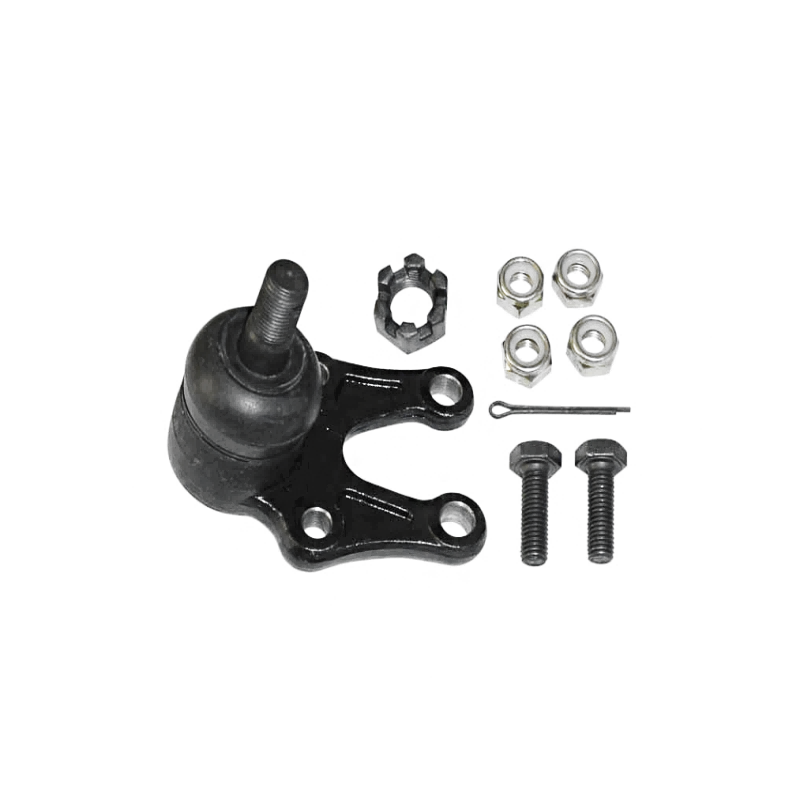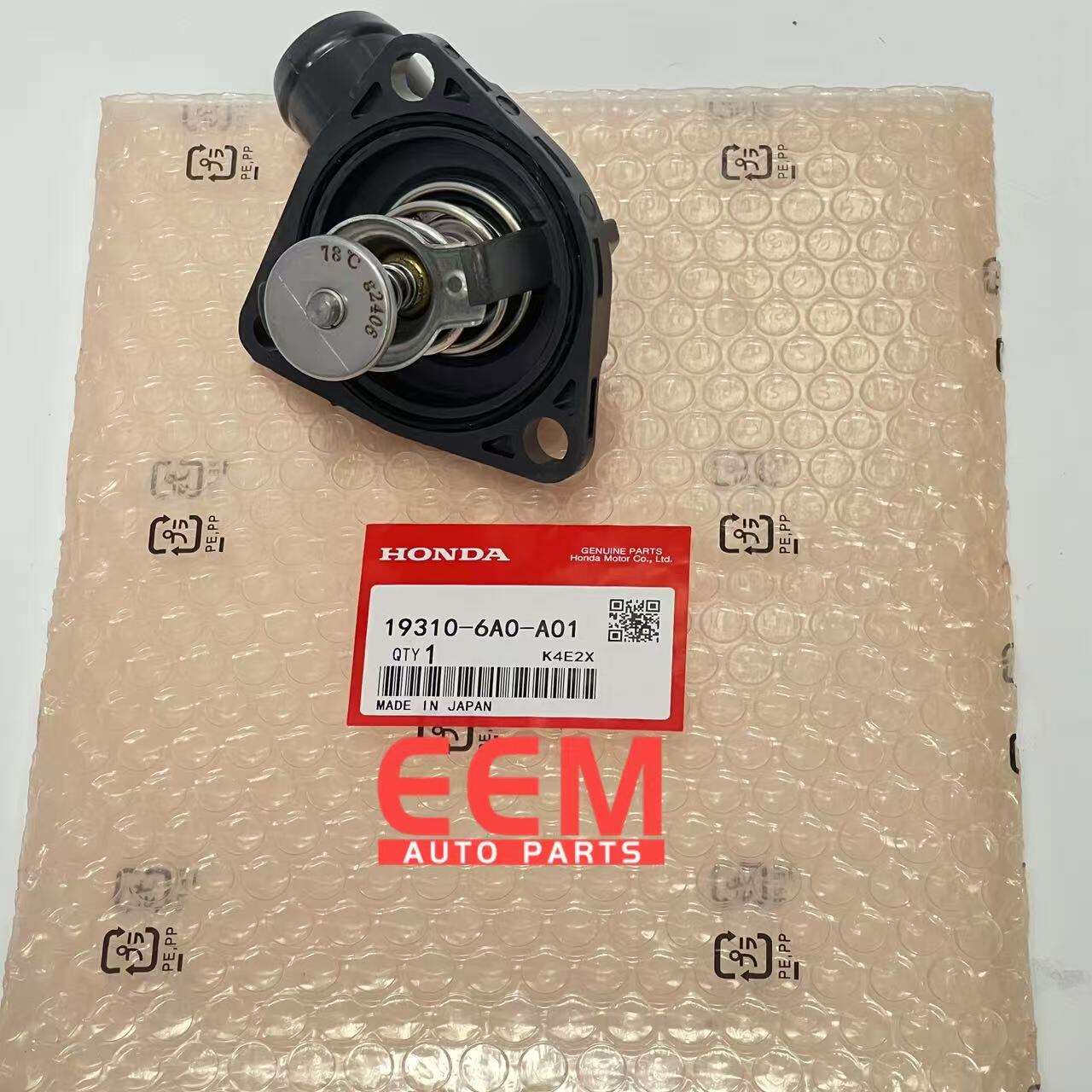The global automotive industry has witnessed unprecedented growth in manufacturing capabilities, with Chinese auto parts factories emerging as dominant players in the international marketplace. These manufacturing facilities have transformed from simple production units to sophisticated operations that supply components to major automotive brands worldwide. The evolution of these factories represents a significant shift in global supply chain dynamics, offering competitive pricing, advanced technology integration, and scalable production capacities that meet diverse market demands.

Manufacturing Excellence in Chinese Automotive Production
Advanced Production Technologies
Modern Chinese auto parts factories have invested heavily in cutting-edge manufacturing technologies that rival established automotive hubs in Europe and North America. These facilities incorporate automated assembly lines, precision machining centers, and quality control systems that ensure consistent product output. The integration of Industry 4.0 principles has enabled real-time monitoring of production processes, predictive maintenance scheduling, and data-driven optimization strategies that maximize operational efficiency.
Robotics and artificial intelligence play crucial roles in contemporary manufacturing operations, with many facilities achieving automation rates exceeding 80% in critical production areas. This technological advancement has resulted in improved product consistency, reduced manufacturing defects, and enhanced production speeds that satisfy demanding delivery schedules from international clients.
Quality Assurance Standards
Quality management systems in Chinese automotive manufacturing have undergone significant improvements, with many facilities obtaining international certifications including ISO/TS 16949, ISO 9001, and various OEM-specific quality standards. These certifications demonstrate commitment to meeting stringent automotive industry requirements and provide assurance to global customers regarding product reliability and consistency.
Comprehensive testing protocols encompass material verification, dimensional accuracy checks, functional performance evaluations, and durability assessments that align with international automotive standards. Many factories maintain dedicated quality laboratories equipped with advanced testing equipment, including coordinate measuring machines, material testing systems, and environmental simulation chambers.
Strategic Advantages of Chinese Manufacturing
Cost Competitiveness
The cost advantages offered by Chinese auto parts factories remain a compelling factor for international automotive companies seeking to optimize their supply chain economics. Labor costs, while gradually increasing, still provide significant savings compared to traditional manufacturing regions, enabling competitive pricing for end products without compromising quality standards.
Economies of scale achieved through large production volumes allow these facilities to negotiate favorable raw material prices and optimize manufacturing processes for maximum efficiency. The concentration of automotive suppliers within industrial clusters creates synergistic effects that further reduce overall production costs through shared infrastructure, logistics networks, and technical expertise.
Supply Chain Integration
Chinese manufacturing ecosystems have developed comprehensive supply chains that encompass everything from raw material processing to finished component assembly. This vertical integration capability enables rapid response to customer requirements, reduced lead times, and better control over quality throughout the manufacturing process.
The proximity of suppliers, manufacturers, and logistics providers within industrial zones facilitates seamless coordination and communication, resulting in streamlined operations that benefit both manufacturers and their customers. This integrated approach has proven particularly valuable during supply chain disruptions, as domestic sourcing capabilities provide stability and continuity.
Innovation and Research Development
Technology Transfer and Adaptation
Many Chinese auto parts factories have successfully absorbed and adapted advanced manufacturing technologies through joint ventures, licensing agreements, and independent research initiatives. This technology transfer has accelerated the development of local capabilities and enabled the production of increasingly sophisticated automotive components that meet international standards.
Investment in research and development has grown substantially, with many facilities establishing dedicated engineering teams that focus on product innovation, process improvement, and emerging technology integration. These efforts have resulted in proprietary manufacturing techniques and product designs that provide competitive advantages in global markets.
Emerging Technology Integration
The adoption of emerging technologies such as additive manufacturing, advanced materials science, and digital manufacturing platforms has positioned Chinese factories at the forefront of automotive innovation. These technologies enable rapid prototyping, customized production capabilities, and the development of lightweight, high-performance components that address evolving industry requirements.
Collaboration with academic institutions and technology companies has fostered an environment of continuous innovation, where new ideas and concepts are rapidly translated into practical manufacturing solutions. This collaborative approach has accelerated the development of next-generation automotive technologies and manufacturing processes.
Global Market Expansion
International Partnerships
Chinese auto parts factories have established extensive networks of international partnerships that facilitate market expansion and knowledge exchange. These partnerships range from supply agreements with major automotive manufacturers to joint development projects that leverage complementary strengths and capabilities.
Strategic alliances with global automotive companies have provided Chinese manufacturers with valuable insights into international market requirements, quality expectations, and technological trends. These relationships have been instrumental in elevating manufacturing standards and expanding market reach beyond traditional geographic boundaries.
Export Market Development
The export capabilities of Chinese automotive component manufacturers have grown exponentially, with products reaching markets across North America, Europe, Asia, and emerging economies. This global reach has been facilitated by improvements in product quality, competitive pricing, and reliable delivery performance that meets international customer expectations.
Trade facilitation measures and international certification programs have streamlined export processes and reduced barriers to market entry. Many manufacturers have established regional distribution centers and service networks that provide local support for international customers, enhancing their competitive position in global markets.
Future Outlook and Sustainability
Environmental Responsibility
Environmental sustainability has become a priority for Chinese auto parts factories, with many facilities implementing comprehensive environmental management systems that address energy consumption, waste reduction, and emission control. These initiatives align with global automotive industry trends toward sustainable manufacturing practices and environmental stewardship.
Investment in clean energy technologies, waste recycling systems, and eco-friendly manufacturing processes demonstrates commitment to environmental responsibility while maintaining operational efficiency. These sustainability initiatives have become increasingly important factors in supplier selection processes for international automotive companies.
Digital Transformation
The ongoing digital transformation of Chinese automotive manufacturing encompasses various aspects including smart factory implementations, IoT integration, and data analytics platforms that optimize production processes. These digital initiatives enable predictive maintenance, quality optimization, and supply chain visibility that enhance overall operational performance.
Artificial intelligence and machine learning applications are being deployed to analyze production data, identify optimization opportunities, and predict market trends that inform strategic decision-making. This digital evolution positions Chinese manufacturers to adapt quickly to changing market conditions and customer requirements.
FAQ
What quality certifications do Chinese auto parts factories typically maintain
Most reputable Chinese auto parts factories maintain international quality certifications including ISO/TS 16949 automotive quality management systems, ISO 9001 quality management, and various OEM-specific certifications. Many facilities also comply with environmental standards such as ISO 14001 and occupy health and safety certifications that demonstrate comprehensive operational excellence.
How do Chinese manufacturers ensure consistent product quality for international customers
Quality assurance in Chinese automotive manufacturing involves comprehensive testing protocols, advanced inspection equipment, and statistical process control systems. Many facilities maintain dedicated quality laboratories with sophisticated testing capabilities including coordinate measuring machines, material analysis equipment, and environmental simulation systems that verify product performance under various conditions.
What are the typical lead times for automotive components from Chinese suppliers
Lead times vary depending on component complexity and order quantities, but typical production schedules range from 2-8 weeks for standard components. Many Chinese auto parts factories maintain inventory buffers for commonly ordered items and have established expedited production capabilities for urgent requirements. Supply chain integration within industrial clusters often enables faster turnaround times compared to distributed manufacturing networks.
How do Chinese auto parts factories handle intellectual property protection
Intellectual property protection has strengthened significantly in Chinese manufacturing, with many facilities implementing comprehensive IP management systems, confidentiality agreements, and secure data handling protocols. Major manufacturers often undergo third-party IP audits and maintain segregated production areas for proprietary components. Legal frameworks and enforcement mechanisms have improved substantially, providing better protection for customer designs and specifications.
Table of Contents
- Manufacturing Excellence in Chinese Automotive Production
- Strategic Advantages of Chinese Manufacturing
- Innovation and Research Development
- Global Market Expansion
- Future Outlook and Sustainability
-
FAQ
- What quality certifications do Chinese auto parts factories typically maintain
- How do Chinese manufacturers ensure consistent product quality for international customers
- What are the typical lead times for automotive components from Chinese suppliers
- How do Chinese auto parts factories handle intellectual property protection

